Patricia Barganier is the founder of Barganier and Associates LLC — a national boutique firm that specializes in unclaimed property consulting for Fortune 500 companies.
Recently, I spoke at a conference targeted at the securities industry. One of the overarching themes was unclaimed property specifically as it relates to digital currency and whether there is an unclaimed property reporting responsibility. To level set, the following provides an overview of digital currency. Following are Barganier’s observations related to unclaimed property reporting of digital currency.
What is Digital Currency?
The term digital currency is used to refer to currency that exists solely in a digital space. It does not have a tangible medium. Transactions are recorded electronically. There are typically two types of digital currencies: virtual currency and cryptocurrency.
Virtual currency is a type of digital money which can be used to purchase goods and services. It has no legal tender status, meaning that it is not recognized as a medium of payment by legal systems such as the Federal Reserve. The most popular form of virtual currency is known as Bitcoin. (Source: Investopia).
Cryptocurrency is a digital currency in which encryption techniques are used to regulate the generation of units of currency and verify the transfer of funds, operating independently of a central bank (Source: Oxford Dictionary).
How are Virtual Currency and Cryptocurrency similar?
They are unregulated;
They are not issued by a bank; and
They are subject to price volatility.
How are Virtual Currency and Cryptocurrency different?
Virtual currency has a central repository, cryptocurrency does not.
Virtual currency is controlled by a creator who developed/created the currency (think of Facebook and the introduction of Libra or other financial institutions issuing other forms of virtual currency.)
Cryptocurrencies are created with cryptographic algorithm and only exist online.
What is the draw for Digital Currencies?
A third-party intermediary does not need to be involved with a transaction. Therefore, transactions fees are reduced or are non-existent. Further, transactions can be processed instantaneously.
Digital Currency as Unclaimed Property
At the conference, there was a discussion about digital currency and when and whether the digital currency would become unclaimed property. Most companies have decided to take a conservative position and are following the current regulatory framework related to securities and applying this to digital assets.
This raises questions as most states have not passed or proposed legislation to identify which digital assets are considered unclaimed property and are required to be reported, the period of time that digital assets would be considered dormant, or the method for transferring to a state.
From the holders’ perspective, there are many questions, especially for a non- financial institutions who may be involved in a digital transaction:
Do holders have the technology to properly age dormant digital currencies?
How will holders secure the digital assets which are being aged as unclaimed property?
How will digital assets be reported, in digital currency or converted to US dollars? Does this pose a valuation issue? How will fractional amounts be reported?
Names and addresses likely do not exist, so the holder’s state of incorporation may get sourced the dormant digital currency. Does the holder’s state of incorporation provide guidance to the holder related to digital currency?
From the states’ perspective, there are many questions:
How will states define digital assets as unclaimed property?
In what currency will digital assets need to be reported (US currency or in the digital currency)?
How will states hold the digital assets?
How and when will the states liquidate the digital assets?
How will states value the property when owners come forward?
How will states perform statutory due diligence?
There is little guidance available. The Revised Uniform Unclaimed Property Act (“RUUPA”) has provided a definition of virtual currency but is silent on cryptocurrency. States would need to affirmatively pass legislation to incorporate this provision in the state’s statutes.
One State is Taking the Lead
New York is taking the lead on digital assets, as it has in other areas, with the introduction of legislation in 2019 related to digital. Digital assets would be considered escheatable. New York provides clarity with regard to some of the items addressed above. As the states try to figure this out, one can draw conclusions from past experiences to determine the path which may be taken applying current statutes to the new form of currency. But there is still uncertainty.
One thing is for certain, unclaimed property is ever evolving as is technology and the way in which business in conducted. Barganier is available to help holders manage through this maze of regulation, uncertainty and compliance.

